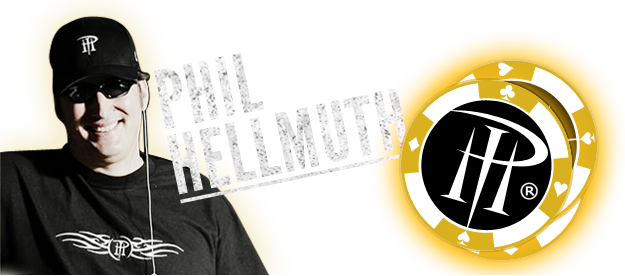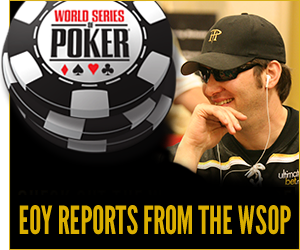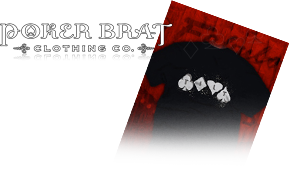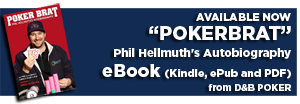-
Furst Versus Worst
In the $1,500 buy-in pot limit Hold ’em tournament at the World Series of Poker (WSOP) this year, more than 1,100 players began the day looking for a coveted gold bracelet, and more than $340,000 for first place. Two days later, nine players sat down at the final table, including top pros John Juanda and Can Hua, high limit player Rick Chase, and “Tilt Boy” Rafe Furst. Juanda was eliminated when his Q-Q lost all-in before the flop versus Hua’s A-K.
With the blinds at $10,000-$20,000, Furst looked down at A-A on the button. He decided to just call the $20,000 bet in order to induce some action. In the old days, a common poker maxim was this: if you slow play your big pair and lose a big pot, then you get what you deserve. This rule seemed set in stone when I first came around the scene in the late 1980s, and for good reason. The top players felt that by slow playing big pocket pairs you were giving your opponents “free cards,” which they then used to bust you. The rule was so prevalent back then that if I ever lost a huge pot slow playing my big pocket pair everyone would say, “You slow played K-K? Of course you got what you deserved.” There was no further discussion needed! Never mind the fact that I was a huge favorite with one card to come when the money went in, or that there may be a good reason why I slow played my hand, or that I actually induced the action that I was hoping for; it was simply “Do not slow play big pairs.” That was then and this is now. In my books, DVDs, and online courses, I talk about why slow playing big pairs can be a great strategy sometimes.
-
Cunningham Going for the Gold
With five players left at the 2006 World Series of Poker (WSOP), the following hand came up between top pro Allen Cunningham and eventual winner Jamie Gold (Gold is now the reigning World Champion of poker). At the time, Gold was the chip leader with $44.7 million in chips and Cunningham was in third place with $13.7 million in chips. With the blinds at $150,000-$300,000 Cunningham opened — as the first person to act — for $900,000 with Ac-10c, Gold called on the button with 8s-8d, and Paul Wasicka called $600,000 more in the big blind with Js-10h.
The flop came down Ah-8c-2s. What a dream flop for Gold, and conversely, a nightmare flop for Cunningham. Wasicka checked, Cunningham bet $1 million, Gold studied for a second and called, and Wasicka folded. By just calling on the flop Gold was attempting to trap Cunningham, and that is an advanced play that I would rate as a good one. On the other hand, I wouldn’t mind seeing Gold make a raise here, of about $1.5 million or so. This would force Cunningham to call if he had an ace, and perhaps move all-in if he had A-K, A-Q, A-8 or A-2. Still, all in all, I like the call more. The perfect play here depends on a successful read of your opponent. I would hope that if I were in Gold’s shoes, that I would sense strength (in which case I would raise it up) or weakness (in which case I would just call).
-
Winning from the Hole
The 2007 TOC (Tournament of Champions) will undoubtedly be repeated quite a bit on the ESPN family of networks over the next few months. After all, Mike “The mouth” Matusow, Daniel “Kid poker” Negreanu, and WPT (World Poker Tour) announcer and professional player Mike Sexton were the final players left standing — and all are big names in the poker world. Of course, Matusow and Negreanu are always extremely entertaining to watch with their banter, barbs and trash talking. Most importantly, let’s not forget that all three were playing some top-notch no-limit Hold ’em.
A lot was made of the fact that Sexton has improved his game by watching the hole cards from every WPT event over the last four years, and I do believe that that was a big factor in his win. I know that it always helps my game when I observe the hole cards in the poker tournaments where I commentate, including “Celebrity Poker Showdown” (Bravo). The celebrity players may not have been the best, but it was still educational for me. (I noticed that the celebrities bet way too much when they had a strong hand.) In fact, even as I watched the TOC on television this week, I was picking up things.
-
After-Hours Poker
Poker will run six days a week on NBC in 2007 at 2 am. The show, “Poker after Dark,” features a format with six known players vying in a $20,000 buy-in winner-take-all sit-and-go. Each hour-long show will run every day but Sunday. It will be a great show to learn from, with no commentary whatsoever. Obviously some will be better to watch than others, like the one that I played in recently featuring Mike “the mouth” Matusow, Tony G, Phil Ivey, Andy Bloch, and Sammy Farha.
Unfortunately, I didn’t play my best in any of the three that I played in. In fact, Doyle Brunson and I talked about the fact that it was tough to get up for these things, without history or a ton of money at stake, although there certainly was pride on the line. Early on, Matusow was down to $6,000 and feeling a bit down.
-
Key Hand at European Poker Championships
I’m rolling it back to the year 2000, when I went to Vienna to compete in the European Poker Championships — or Poker EM. The Casino Austria-Baden is a beautiful setting for the Poker EM. The marble interior is nothing short of amazing. The prestige associated with the Poker EM is second only to the World Series of Poker. Winning the three-day-long Poker EM would be a nice feather in anyone’s cap. By the way, I finished ninth in the Poker EM in Vienna in October 1999, and blew it down the stretch.
In 2000 at the Poker EM, I vowed that, if I was in position to win it again, not to blow it again! If I was unlucky down the stretch, then so be it. But, please oh please, just don’t let me give away my chance to win another title!
I was enormously relieved when I did make it to the final table, even though I was now fourth place in chips. I had the low card three of the first five hands at the final table, but I refused to let the fact that I had gone from $33,000 to about $23,000 by “low carding” bother me. -
Make the Most of It!
As I write this, the World Poker Tour (WPT) rolled on through the Bellagio in Las Vegas. The $10,000 buy-in poker tournament began on Monday and ended on Friday. With more than 600 players and a first place prize of more than $1 million, winning it will be pretty sweet for someone (I wrote this article on Wednesday).
Day 1 things didn’t go very well for me, although I did make it to Day 2. I didn’t pick up very many strong hands and my bluffs didn’t seem to work out very well. When you have a day like this, then you need to make the most of the strong hands that you do hold. One hand, with the blinds at $200-$400 I had A-A in the big blind. With one caller, Player A made it $2,000 to go and everyone else folded to me. What to do? Should I move Player A all-in for his last $12,000 and thus make it look like I have A-K? Or should I just call the $2,000 raise and trap Player A and the other caller? Or should I raise an amount somewhere in between $2,000-$12,000?
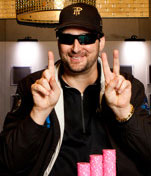
 ™
™



